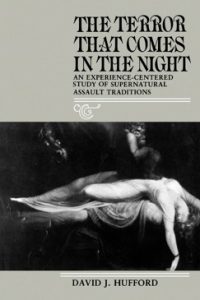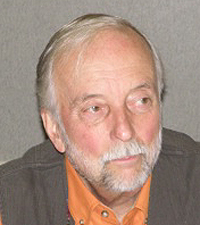Extraordinary Spiritual Experiences (ESEs), such as near-death experiences and after-death contacts, are common around the world and have been shown to be normal and salutogenic. Substantial data indicates that several of these experiences are associated with better psychological health. ESEs have healing power, a power partly rooted in the way that the knowledge they confer to the experiencer produces a cognitive re-appraisal of threats and, therefore, stress. Since stress can produce morbidity and death, and cognitive appraisal modulates stress, the spiritual resources arising from Extraordinary Spiritual Experiences can be potent mediators of the stress response and, therefore, health. To facilitate the use of this resource it is necessary to combat the stigma of psychopathology that has been consistently used by skeptics to “debunk” ESEs, and to assist experiencers in an appreciation of the empirical and rational support that exists for taking ESEs seriously.
David Hufford, Ph.D., retired in 2007, from his position as University Professor and Chair of Humanities, and Professor of Neural & Behavioral Science, and Family & Community Medicine at Penn State College of Medicine. He is now University Professor Emeritus at Penn State, Senior Fellow in the Brain, Mind and Healing Division of the Samueli Institute in Alexandria, Virginia, and Adjunct Professor of Religious Studies at the University of Pennsylvania. Hufford has served regularly on NIH scientific review panels, and he has published and lectured widely on spiritual experience and on spirituality and health. In 2012 Hufford chaired a panel and presented a paper on Natural Histories of Spirituality and Therapeutics at the 3rd World Congress of Cultural Psychiatry in London. He is currently carrying out a funded study of the relationship of extraordinary spiritual experiences to trauma and recovery.

“A provocative exploratory work.”—Los Angeles Times
“A brilliant and exciting look at a misunderstood phenomenon.”—Western Folklore”
Fascinating, original, and convincing, The Terror That Comes in the Night is one of the most significant books on the paranormal. . . . A classic.”—Fate
“Anyone interested in folklore or dream research or bizarre and unexplained phenomena, which are here examined carefully and rationally, will enjoy this volume.”—American Rationalist
David Hufford’s work exploring the experiential basis for belief in the supernatural, focusing here on the so-called Old Hag experience, a psychologically disturbing event in which a victim claims to have encountered some form of malign entity while dreaming (or awake). Sufferers report feeling suffocated, held down by some “force,” paralyzed, and extremely afraid.
The experience is surprisingly common: the author estimates that approximately 15 percent of people undergo this event at some point in their lives. Various cultures have their own name for the phenomenon and have constructed their own mythology around it; the supernatural tenor of many Old Hag stories is unavoidable. Hufford, as a folklorist, is well-placed to investigate this puzzling occurrence.

